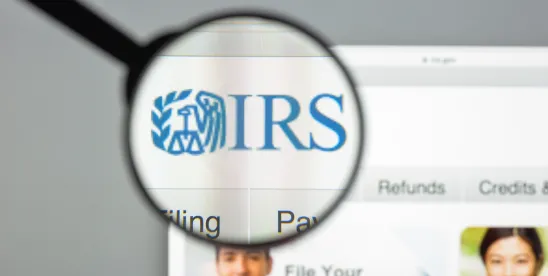Plan sponsors of Code Section 403(b) tax-sheltered annuity plans (“403(b) plans”) that have not already done so may want to consider applying for an IRS determination letter or planning and budgeting for the process next year if they are not yet eligible.
In June, the IRS determination letter program became available to a second group of 403(b) plans – those with plan sponsors that have EINs that end in 4, 5, or 6.
The IRS rollout of this qualified plan determination letter program for 403(b) plans began in June 2023 plans sponsored by employers with EINs that end in 1, 2, or 3 and will continue in June 2025 for plans sponsored by employers with EINs that end in 7, 8, 9, or 0.
Currently there is no deadline for applying for an initial determination once your plan becomes eligible.
What is a Determination Letter?
Under the determination letter program, the IRS will review the plan documents of certain employer benefit plans and determine whether the form requirements are satisfied.1 If its review is favorable, the IRS will issue a determination letter, which generally precludes it from subsequently disqualifying the plan based on a form violation or for administering the plan in accordance with the terms of the approved document. Historically, 403(b) plans were not permitted to receive a determination letter, but the IRS recently opened up a one-time application opportunity for established plans. Otherwise, a 403(b) will only be eligible for a determination letter in the following circumstances:
- An initial determination upon establishment of the 403(b) plan,
- Following a plan merger, or
- Upon the termination of a 403(b) plan
Why Seek a Determination Letter?
403(b) plans must satisfy detailed requirements in both form and operation. A failure to comply with either the form requirements or the operational requirements could result in the loss of favorable tax treatment—which means that tax-deferred account balances under the 403(b) plan would be subject to immediate income tax, as well as interest and potential penalties. The determination letter program provides important protection against this untenable result.
Proskauer Perspective
The complexity of employee benefit plans means there is always a risk that an IRS audit will reveal an error in a plan document. The determination letter program gives plan sponsors comfort against such a risk by assuring them that, even if a defect in the plan is later discovered, the plan will not be disqualified. As a result, the expansion of the program to more 403(b) plans is welcome news.
However, plan sponsors may want to take a pause before rushing to submit their plans for a determination letter. A careful review of the plan documents should be conducted before requesting a determination letter, as the IRS reserves the right to impose penalties if it discovers a violation during the determination process. Many of these penalties can be avoided if first corrected via the Department of Labor’s Voluntary Fiduciary Compliance Program.
- Importantly, the IRS does not review plan operations under the determination letter program. ↩︎




 />i
/>i

